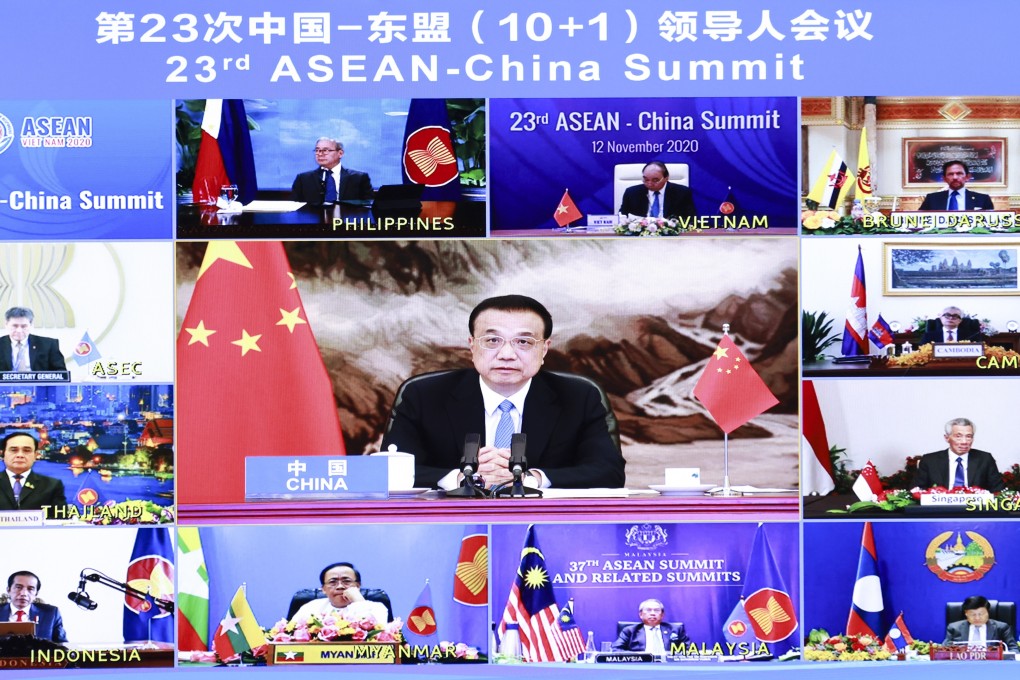Advertisement
South China Sea: China asks Asean for quick resolution to code of conduct
- Chinese Premier Li Keqiang urges neighbours to overcome pandemic distractions and speed up negotiations
- Observers say growing tension between Beijing and Washington may cause Asean members to tread cautiously
Reading Time:3 minutes
Why you can trust SCMP

Chinese Premier Li Keqiang called for the quick conclusion of a code of conduct for the South China Sea during a summit with leaders of Southeast Asian countries, as Beijing seeks to consolidate its influence in the region amid growing pressure from the US.
Speaking at a video summit with leaders of the 10-member Association of Southeast Asian Nations (Asean) on Thursday, Li also pledged to deepen ties with the bloc to aid post-pandemic economic recovery, infrastructure construction and defence cooperation.
In a rare reflection of Beijing’s deep concerns over the negotiations for the code of conduct – the talks have been stalled since the Covid-19 outbreak in January – Li stopped short of mentioning Beijing’s three-year timeline to finalise the agreement by 2021 but urged regional players to “overcome interferences by the pandemic”.
Advertisement
“[Countries should] take a flexible and pragmatic approach to speed up negotiations to demonstrate to the international community that we have the wisdom and capability to take good control of the South China Sea and maintain the peace and stability of the South China Sea,” Li said, according to a transcript released by the Chinese government.
To expedite negotiations, China would be willing to host physical meetings “as soon as possible” when the pandemic situation allowed, Li said.
Advertisement
Advertisement
Select Voice
Select Speed
1.00x